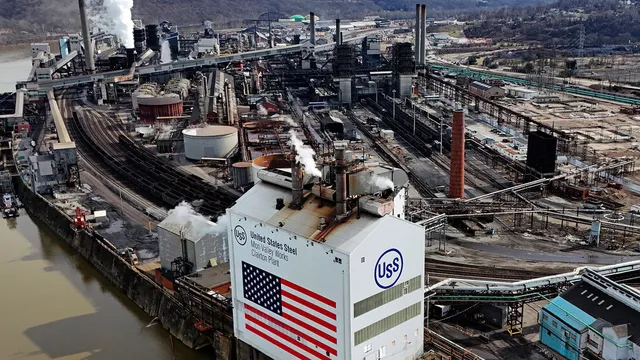
Biden Expected to Block U.S. Steel Takeover
2024-09-05 00:00- The Biden administration is preparing to block Nippon Steel's acquisition of U.S. Steel due to national security concerns.
- The deal has faced opposition from lawmakers and the Steelworkers Union, emphasizing the importance of American ownership.
- The potential block could damage the U.S.'s reputation for open markets and politicize foreign direct investment.
Express your sentiment!
Insights
President Biden is poised to block the proposed $15 billion acquisition of U.S. Steel by Japan's Nippon Steel, primarily due to national security concerns. The Committee on Foreign Investment in the United States (CFIUS), which includes members from various government departments, is expected to recommend against the sale. This decision comes amid scrutiny from lawmakers and labor unions, particularly the Steelworkers Union, which has expressed strong opposition to the deal, emphasizing the importance of keeping U.S. Steel American-owned. The potential merger has significant implications for the upcoming presidential election, especially in swing states like Pennsylvania, where the steel industry plays a crucial role. Biden's administration, along with former President Trump and Vice President Kamala Harris, has publicly stated that U.S. Steel should remain under American ownership, reflecting a broader sentiment against foreign control of critical industries. Following reports of the anticipated block, shares of U.S. Steel fell by 23%, indicating investor concern over the deal's future. Meanwhile, U.S. Steel's CEO, David B. Burritt, has rallied support for the acquisition, arguing that it would bring benefits and warning of negative consequences if the deal fails. This situation highlights the tension between economic interests and national security considerations in the context of foreign investments. Legal experts have noted that blocking such a deal could harm the U.S.'s reputation for maintaining open markets, suggesting that politicizing foreign direct investment could lead to broader implications for international trade relations. As the situation develops, the outcome of this potential block remains uncertain, with ongoing discussions expected in the coming weeks.
Contexts
The Biden administration is expected to block Nippon Steel's $15 billion acquisition of U.S. Steel, largely due to significant opposition from labor unions and key political figures. This decision is critical as U.S. Steel's CEO has warned that blocking the sale could lead to plant closures and a potential relocation of the company's headquarters from Pittsburgh, emphasizing the fragile state of the American steel industry. The merger is vital for U.S. Steel, as it includes a necessary $3 billion investment for the company's survival. The opposition reflects broader concerns about preserving domestic manufacturing jobs, particularly in Pennsylvania, a key swing state ahead of upcoming elections. Additionally, the Biden administration's stance aligns with its efforts to mitigate foreign influence threats, particularly from Russia, which may impact the political landscape surrounding domestic industries like steel. This intersection of economic and political factors complicates major corporate decisions in the U.S. As global shares dipped in anticipation of a crucial U.S. jobs report that could influence the Federal Reserve's interest rate decisions, concerns about a possible recession have also affected investor sentiment. This cautious trading atmosphere may further complicate the economic pressures faced by U.S. Steel amidst ongoing competition.